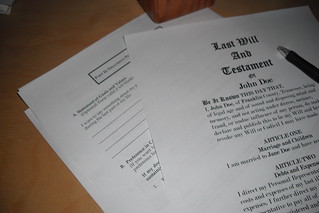The vast majority of estates in the United States are not eligible for the federal estate tax but you may still be questioning how an asset will be appropriately determined as far as cost basis. Cost basis calculations for estates are different for those used for other tax purposes. In order to calculate capital gains on assets that you own, cost basis has to do with the original value of the asset for tax purposes with a few other adjustments. 
When it comes to an item that you have inherited as part of someone’s estate, the cost basis is typically equal to what is known as the fair market value of the asset or the property at the time the person passed away. Fair market value relates to what the asset would command in the marketplace. If the asset has decreased in value since the date of death or the date of the transfer, the estate administrator can decide to use alternate valuation dates for the estate.
You will need to consult with an experienced estate planning attorney if there are assets inside your estate that might require more advanced planning opportunities. A consultation with an estate planning lawyer can answer many of the most common questions presented by those hoping to accomplish estate planning and to minimize concerns and problems in the future.























